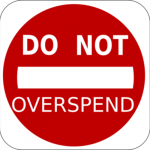Renter’s Guide To Frugal Living
Make Sure You Vet The Landlord/ Agency
Find a Rental Property On Your Devices With Free Rental Apps
Are you looking for a new place to rent? It could be made easier if you download some of the free iOS and Android apps that can be downloaded to your smartphone or other devices for free. Rightmove and Zoopla are two of the most popular and best free apps for property, and could help you grab the right gaff for you. The rental market can move quickly so it is important to remain on your toes and move quickly on the right property.
Consider a Home Sharing Scheme to Save on Rent
It can save a lot of money to share a property with friends. Sharing with friends can significantly reduce the costs of utilities and rent. But of course this is not always an option.
If you’re striking out on your own, however, there are still ways to cut rent costs. For example, you could consider helping vulnerable people as well as cutting costs through a Share and Care scheme. These schemes allow renters to move in with homeowners who are elderly or disabled and give them a little help around the house, and some company, in return for lower-cost rent.
Sharers involved in such a scheme agree to give ten hours of help a week and must spend the majority of evenings in the home. Current listings can be found on the Care and Share website. Accommodation varies, and can include single or double rooms which are furnished or unfurnished, and also sometimes a separate bathroom and living area for the sharer. The rent varies depending on the location of the property but tends to be around £180 per month in London, £150 a month in the suburbs and other cities, and £120 in more rural areas or villages.
Consider Becoming a Property Guardian
- Accommodation can be basic (and you might have to share with ghosts!).
- Most places need work doing and may not be furnished.
- You will have to pay a deposit, fee when you sign up, and for a fire safety pack.
- You will have fewer rights as a guardian than a tenant and you may need to pack up and move out with only a couple of weeks notice.
However, if you are employed, with no kids or pets and no criminal record, are flexible and don’t mind roughing it, this could be an adventurous option for you to try. Property guardian companies include Camelot and Adhoc.
Don’t Be Afraid to Haggle Down the Rent on a Property
Beware of Over-Priced, Problem Properties
- Damp issues. (Look out for mould, wet spots, peeling paper or a damp smell.)
- Cracks or leak spots in ceilings that could denote a problem above.
- A faulty water system or heating. (Run taps, flush the toilet, check heaters come on etc…)
- Insecure locks, or signs of previous break ins.
- A mobile dead zone (check with your phone while viewing)
- Faulty appliances (if fridges, freezers etc are included, check they are functional)
- Dodgy neighbours (look out for run down properties next door, listen for noise from neighbours etc…)
What To Ask When Considering a Rental
- How long is the tenancy contract?
- Are any rent increases scheduled?
- How long has it been up for rent?
- Who maintains communal areas/ garden etc.?
- Is it furnished/unfurnished? Which items are included?
- Who lives upstairs/ next door? Have there been any disputes?
- How long did the previous renters live here?
- Is parking included/ is a parking permit needed?
Asking these questions can help you determine exactly what you will get for your money and whether this is the right place for you.
You should also check that the landlord meets their obligations. They must provide the following documentation when you move in:
- A gas safety certificate.
- Deposit Protection Scheme papers (see below).
- An energy performance certificate.
- Fire safety labels on any furniture included in the rental.
- A copy of the Government’s ‘How to Rent’ Guide.
Make sure you check the rental agreement document thoroughly to make sure you are happy with the terms and make sure you are aware of what responsibilities will be met by the landlord, as well as your own obligations.
Check that Your Deposit is Protected
- You will get back the full deposit at the end of your tenancy as long as you’ve fully met the terms and conditions of the tenancy agreement.
- If you agree with your landlord about how much you’ll get back, the deposit will be returned to you within ten days of the end of the tenancy.
- If there is a dispute, this will be settled with a free dispute resolution service that will investigate and determine how much of your deposit you should get back.
Ask the landlord or letting agent at the outset which scheme they will use to protect your deposit. If you are already renting and the scheme is not named on your contract, ask the landlord and get it in writing.
Look Into Ensuring That Paying Rent on Time Will Boost Your Credit Score
Since October 2018, rent payments are made visible in your credit file, so this now has a real impact on how firms will score you when you apply for credit. It is relatively easy to join the scheme, especially if your social housing provider, letting agent or private landlord is already signed up.
-
- Ask if the body or person you rent from is signed up.
- If they are, you will already automatically be signed up (and would have to opt out if you did not wish for rent to be noted on your credit report).
- If they are not, you could ask them to join and add your information.
- If they’re not signed up and have no interest in signing up, you can self-report.
- To self-report, you have to sign up with one of Experian’s partners – Credit Ladder or Canopy, and grant them read-only access to the bank account from which you pay rent. It uses Open Banking to verify and monitor rent payments. Of course, you would need to feel happy with sharing your details in order to do this. But it could be worthwhile if you are keen to build or repair your credit rating and will always be able to pay your rent on time.
Insure Contents Right From the Start of your Tenancy
Buildings insurance is only available for home owners (if you want to know whether the property you rent has building insurance in place, you can ask your landlord). However, you do not need to own a property in order to get the right level of contents insurance. In order to protect your belongings, you should make sure that you have contents cover in place from the very beginning of your tenancy. Check prices through Money Pug to find the very best contents insurance deals.
If you rent alone, or just your family lives in the property, you should find it easy to find the right level of contents cover. It is worth noting that it can be tricky to find cover if you share with flatmates.
Make sure that you check the terms and conditions on a policy to make sure that you will be covered in a shared rental. For example, a policy may state that you will only be covered in a shared property if you have a lock on the door of your room. Always let insurers know that you live in a shared property (even if your housemates will not be covered by the policy) or you could risk invalidating your insurance and may not get a payout should you need to make a claim.
Furnish Your Rental Cheaply or Even For Free
If you are renting an unfurnished or part furnished property, you may be concerned about being able to afford to kit the place out with everything that you need. The great deals on Money Pugs price comparison shopping section of this site can help you to pick up the essential appliances and other items for less.
But there are plenty of furniture and other items for your home that you may not need to pay for at all. By visiting online sites such as Freegle, Freecycle can allow you to source a wide range of things for your rental for free, and second hand sites like Pre-Loved and Gumtree can also be a source of a lot of cheap, second hand furniture and household items.
Old furniture you source online might not be exactly what you want, but there are plenty of ways to breathe new life into old things. Learning new skills like basic upholstery and how to upcycle old wooden furniture can help you significantly reduce the cost of furnishing your rental home.
Switch to Get the Best Energy Deal
Even if you rent, it is still usually possible to switch energy supplier, and doing so could save you hundreds of pounds on your monthly bills. Even if your tenancy agreement says that you cannot switch, Ofgem says that you should not be unreasonably prevented from changing energy supplier. The only time that you will likely not be able to switch is if you pay via your landlord, and your bills are included as part of your rent.
If you pay your own utilities, it is definitely worthwhile considering a switch, especially if you are currently with one of the big six suppliers. Money Pug’s handy comparison site can help you to find the best deals.
If your landlord won’t let you switch, talk to Citizens Advice to see if they can help, as preventing a tenant from changing suppliers may be viewed as an unfair term in a tenancy agreement.
Take Meter Readings As Soon As You Move In
It is important to make a note of the meter readings as soon as you move into a rental property. That way, you will avoid being charged for energy that you did not use. You don’t want to be charged for energy that was used by the previous occupants.
It also makes sense to reach your meter regularly and to provide details to the energy supplier (if you don’t have a smart meter that automatically sends readings). Estimates can often be well off and you could end up being overcharged.
How To Reduce Energy Use in a Rented Property
As well as making sure that you are getting the very best deals on gas and electricity, tenants can also do certain things to reduce the amount of energy that they use and lower energy bills. Obviously, as a tenant, you will not be able to make any material changes to the property itself, such as improving the insulation or installing wood stoves, solar panels etc… and in a furnished property, it is unlikely that upgrading appliances to more efficient models will be an option. But there are a number of small measures that you can take to reduce energy use. For example, you can:
-
- Heat only rooms that need to be heated, and only while they are in use.
- Keep doors closed to keep in the heat, and use draft excluders and thick curtains to reduce heat loss.
- Switch off lights and unplug electronics when they are not in use.
- Switch out lightbulbs for energy saving LED bulbs, if this has not already been done.
- Drying clothes on an airer rather than tumble drying.
Sort Out a Great Deal for Broadband, Phone & TV
Especially if you live in a shared rental, it is important to make sure that you have a generous broadband deal that will provide enough monthly data and good enough speeds to meet all of your needs. Search Money Pug’s listings to find the best deals on broadband where you live, and consider a bundle with broadband, phone and TV to save.
Check if You Need a TV Licence
Check to see if you require a TV licence. You will usually require one TV licence to cover your property, though sometimes (for example, if you have a separate tenancy agreement from your housemates, or your own toilet and sink) you may need your own license in a shared rental. Make sure you check with your landlord to see if they already have a licence for the property before buying one. Work out whether you will actually be watching live TV or BBC iPlayer, as if you are not, you don’t need a licence for Netflix or Amazon Prime.
Use a Free App to Track and Split Bills
If you are sharing a rental property, tracking and splitting household bills can be a bit of a nightmare. Fortunately, there is an app for that. The free app Acasa (formerly called Splittable) can make this a lot easier and less stressful. This app will help you keep everything straight and keep an eye to make sure everyone is paying what they should.
Watch Out – Joint Accounts With Flatmates Can Affect Your Credit Rating
If you share a rental, it can often be helpful to have joint accounts into which you can all deposit the money to pay your shared bills. Money Pug can help you to compare all your current account options and find the best one for your needs.
How To Make Sure You Get Your Deposit Back At The End Of Your Tenancy
-
- Check your tenancy agreement thoroughly to find out exactly what it requires.
- If any damage occurs, fix it up properly – don’t just paint over the cracks…
- Check the inventory to make sure nothing is missing, and replace missing or broken items like for like.
- Make sure you know where the stopcock is, so you won’t have a flooding emergency.
- Get your landlords permission before doing any redecorating.
- Use picture strips to put up pictures without marking walls.
- Do a deep clean before leaving the property.
Maximise Your Interest if you are Saving to Buy a House
Compare through MoneyPug today! and SAVE Money

























